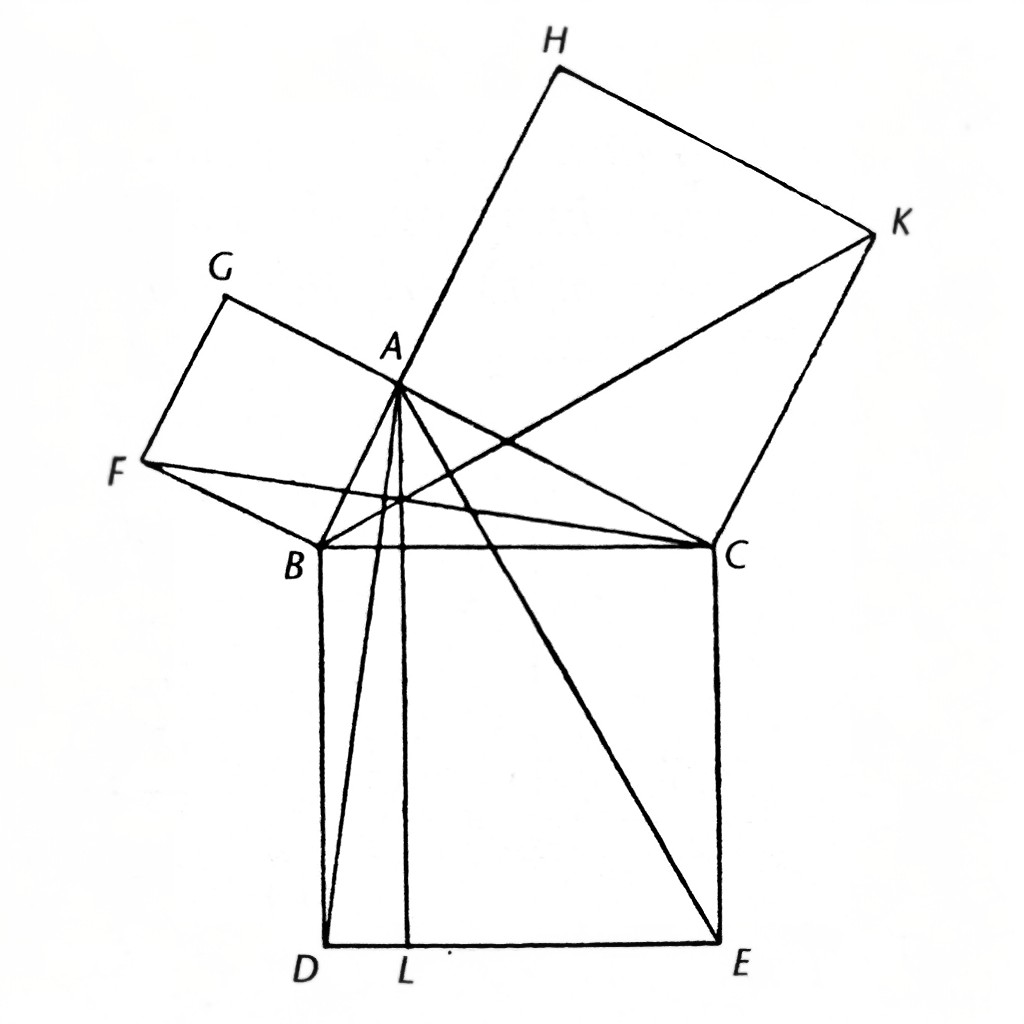I’m in a bit of a productivity rut and whilst I suspect the issue is mainly between the keyboard and chair I’m also interested in what (FOSS) tools there are that people find effective.
One of my issues at the moment is cross managing different workstreams particularly with personal projects which are more in the “if I have time category”.
I’m interested in anything that helps manage time or limit distractions or anything that makes it easier to keep track of progress/next steps for project when there may be a bit of a time gap between.
I use a variety of FOSS tools for both personal and work productivity.
For personal I use:
- Nextcloud (Calendar, sync files, contacts etc, forms, availability sharing)
- Thunderbird (Mail & Calendar)
- Vikunja for managing all my projects/tasks. Also is very useful to have shared tasks with relatives. Another useful feature is that it can share specifics projects to people that do not have an account (for vacancy planning for example)
- Tasks.org to manage Vikunja tasks in Android
- Logseq for managing all my thoughts, ideas, tracking content like books, movies, videos watched
- Nomie (specifically this maintained instance which has some new features). I use it to track myself (mood, anxiety, adhd, symptoms, food and drug consumption, people). It has an API so I for example can automatically insert activities from Garmin API. It is very useful to correlate things in life, or to tell the doctor if a specific symptom has flared up or not and many more things
- Omnivore is my read-later off choice app, replacing Wallabag. It has an EXTREMELY polished interface, can aggregate RSS feeds, supports tags, comments, many filters and more. But the amazing thing is that it has a plugin for Logseq which automatically syncs all my highlights, notes and tags to it
- Ferdium to quickly access all my important services
- Syncthing on my phone, laptops and Kobo to sync Logseq between devices and books/articles from my PC to Kobo
- Liftosaur for exercise routines (it has script language even) and can also track body measurements.
- waistline as a substitute for myfitnesspal or cronometer
For work use:
- Logseq is my main tool, with the capability of connecting to Zotero, reading papers and taking notes which with queries I can leverage it to see new ideas forming. It also acts as the best logbook I’ve ever used through its powerful templates and queries which simplifies a lot the work of comparing results since it can all be done automatically
- Zotero to manage all my papers
- neovim with vimtex, ltex-ls and ultisnips to write documents in LaTeX very fast. Also have some scripts to manage vector graphics very easily using https://github.com/gillescastel/inkscape-figures
- Inkscape for doing all the images for my papers since I plot my graphs in SVG. This way I can edit graphs after ploting and never lose quality
- Ranger file manager
- Espanso
Update 1: Fixed Nomie link Update 2: added waistline and liftosaur since I had forgotten Update 3: added Inkscape
Do you know if it’s possible to use Vikunja as a frontend for next cloud tasks? It does it have some extra sauce on top of caldav?
10-15 years ago the suggested app listings would be about apps that you create something with them, eg gimp, freecad etc. Most of what you suggest here are just apps to manage yourself, where you control your life down to minute detail. I consider such apps to have the effect of losing freedom and the randomness of life. Basically, we’ve moved from being creator beings, to barely living, and requiring app assistance for it.
Interesting take. I think different though, because it does not mean we are not free, I think it helps in moments we are lost. I often find my self overwhelmed by what I need to do so organising myself or keeping myself organised can be very important to me. I don’t use apps to this extend yet, but plan on doing so after building my Nas. I think it’s also very interesting to keep track of my health and mood in order to learn patterns I should avoid in order to stay mentally stable
Why Logseq over Obsidian?
It’s FOSS.
As the others said, the main reason is that it is FOSS. Before Logseq, I was using Standard Notes, which is also FOSS and was enough for my needs then.
Then Logseq appeared at the same time I was learning about graph structured and linked notes as the likes of Tiddlywikis and RoamReasearch
I have found Kate to be very capable with python and rust. With Sessions I can also have my own set of notes in markdown. The plugins are plentiful and git integration is built in.
fkin love kate
Been using Kate as just a notepad…what plugins should I be made aware of ?
Im my distro the all the plugins are included in the repo package. But you just need to Configure Kate and there is a plugins section.
I’m running a few on my NAS:
-
Taiga to manage projects. It’s as easy and pleasant to use as Trello, but with velocity/burndown charts and the whole “agile” thing, but you can also turn parts of it on and off (per project even).
-
Trilium completely cured me of messy note-taking habits, simply by winning on the convenience side. I was firmly in the “folder tree of markdown documents” and “my Sublime Text tabs of random notes have no number” camp before.
-
I’m considering Habitica which lets you set up rewards and achievements for your real life (i.e. apply addictive reward/progress loop from video games to motivate your real self to do things). Also Wger for exercise tracking, but I’m not sure they’re the right thing for my ticket/tracking-averse self (I wish there was something that covered the whole MyFitnessPal/FitDay and the whole Polar Personal Trainer/Garmin Connect side, but FOSS and self-hosted).
For leisure, I also run Stash (it bills itself as an organizer for your porn library, but it’s really good for any kind of clips), Jellyfin for my music and movies and currently both Mango and Kavita for books and comics.
What kind of build do you have for a NAS? How expensive does that look?
I’m not up-to-date with current NAS systems anymore – I’m running an older QNAP NAS (TS-453), and it has their proprietary “Container Station” which can run web applications in Docker + LXD containers. Not FOSS, though the containers very much are and can be moved to other systems.
As an alternative, FreeNAS/TrueNAS sells NAS systems where at least the software side is FOSS. They’re quite expensive, though.
The prices of other brands also quickly breach silly levels, but a basic 2-bay NAS is about ~$250 for QNAP, ~$200 for Synology and ~$1000 for a TrueNAS. Without hard drives.
If you’re not interested in the data storage side, a Mini PC w/Proxmox (popular Docker/LXD container engine w/browser-based management) or even a direct install on a Raspberry PI are possible for under $100.
-
For keeping track of tasks on my projects i use todo txt. For each of my projects will drop a file named todo.txt in the root. each line is a task, and i order them based on priority. I can walk away from it and when i start working on the project again, i have an simple way to see the list of tasks i have laid out for this project.
I personally find it less useful to see the “big picture” of all tasks, and this lets me focus on the details of my projects without forcing a bunch of structure.
emacs org-mode
I’ve recently started replacing most of my shell usage with org mode and babel, along with GitHub copilot and similar LLM backed tools it’s like autocomplete on steroids
This is the way.
Nothing comes even close. I just wish there was a distributed / mobile-enabled way to use org-mode. I guess there exists some project, but running full emacs org-mode mobile is hardly usable.
I got acceptable results with org-roam cooperating with logseq. It took some fiddling with org IDs, config and a bit of elisp, but it’s stable enough for me.
How did you handle note interlinking?
I forced logseq to use relative file links and skipped backlinking in org-roam. However, it looks like logseq now supports org-id links with backlinking. I might need another script to convert :).
Would you mind sharing your experience and/or the script? Would be nice for the community!
deleted by creator
I worry I’m not “hardcore” enough for emacs (I have tried in the past and now mostly use Vim). I will give it a try though as quite a few people recommend here!
It takes a little bit of getting used to, but I found once limited myself to a few useful features I really started using it every day. For the most part I organize myself inside of Jira, but for tasks that I am currently thinking about I put them in a org-mode document. I have a few minor customizations, use a few hot keys, and that’s it.
You could try spacemacs (what I use) or doom emacs. Both have vi-like keybindings as a default and are slightly easier to get going with than vanilla emacs. On the other hand, especially with spacemacs, there’s more to learn than vanilla emacs and more that can go wrong.
Highly recommend pairing this with David Allen’s GTD and Rainer König’s excellent course Getting yourself organized with Org-mode
One of my issues at the moment is cross managing different workstreams particularly with personal projects which are more in the “if I have time category”.
Literally what I use virtual desktops to solve
That and using multiple instances of the browser instead of one instance with many tabs helped me a lot. If i have to switch tasks i go to a new workspace and only open the software related to that task there. Once I’m done i just close everything in the workspace and move back to the previous one that is the same way it was before i switch.
deleted by creator
Is it possible to “save” those sessions between reboots? That would be awesome.
I do with KWin rules. It’s not elegant but it doesn’t require coding
Thank you, I will look into KWin.
Turns out, it is awesome and does more than I need. I already move a lot of my applications with xdotool to prediscribed positions and sizes, via hotkeys, which start some scripts. Now I found out, it also can move them across virtual desktops. Nice :)
So you keep a project open in the Virtual Desktop and then boot it up when you are working on it?
Virtual desktop =/= virtual machine
I think gnome calles them workspaces. This article is old and gnome-specific, but it gives you a good idea of what they are.
https://www.maketecheasier.com/how-to-work-with-workspaces-gnome/
Nextcloud, FreshRSS and KdeConnect come to mind.
How do you use KDEConnect for productivity? I am currently planning a move to KDE Plasma from Gnome (when 6 comes out).
@zerakith @FriendBesto Answering text messages right from the computer is way faster for me. Or file transfers between the smartphone and workstation.
My biggest productivity booster is tmux. I constantly ssh into my pc to continue my work. I even restart my window manager sometimes if I wanna play games or something, but tmux is always there in the background. And being able to get up, go to my living room, open my laptop and continue the work I was doing on my pc has definitely saved me from a few mental blocks.
Why are you working in personal time?
My ssh config has
RemoteCommand=/usr/bin/tmux -u new-session -A -s laptopforHost *
Have a look at Super Productivity it is a todo list app with projects, time tracking, break time reminder. It is completely offline, no registration required.
selfhosted searchengine . i see zero reason not to.
I’m certain you can think of a reason not to if you really try.
Please elaborate, I’ve been interested in this for awhile - what do you use/recommend for someone who’s new?
https://en.wikipedia.org/wiki/Apache_Lucene
there are many other options, also.
Whoogle (through Tor)? ;)
Or searx??
i was thinking more of a narrow information retrieval system. as opposed to doing random exploration and discovery.
@leanleft Hmm. I think I would agree.
I use emacs, Denote, and markdown-mode to keep a loose Zettlekasten archive of notes.
Logseq may help?
I keep a few entries in the content page, for each project, and in each page I got an updated todo list.
You can also capture everything in the same place, journal style, then link it back from the content pages. I find it very powerful.
And it’s FOSS. And md/filesystem based, so I just sync it between devices with git.
I make use of flowtime, which is an timer app similar to pomodoro but with a smarter system for scheduling breaks. Instead of having a set time to go on break you can go on break anytime, and the app calculates a good break time. It also shows your working statistics, which is quite cool to see.
Love Flowtime, I use it almost every time I need to work on something other than my full-time job
I ended up using spreadsheets for keeping track of todos and habits. LibreOffice Calc is the obvious solution for FOSS, though I am using Googles Spreadsheet for cloud syncing and the Android/iPhone apps. If I get trouble with Google I will just copy and paste to LibreOffice and I am good.
For notes, IMHO nothing beats a good directory structure/layout and markdown. (Sorry, org-mode guys. :-P )
Neovim & reStructuredText










